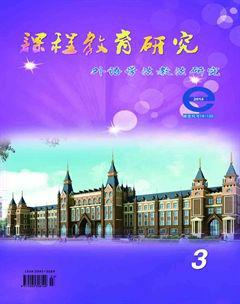English Learning Motivation: Students’ L2 Selves in Chinese Universities
郭漫
【Abstract】It seems that even though students enter university, they are unlikely to liberate from the exam-oriented educational environment. Nonetheless, this seemingly burdensome learning environment is unlikely to reject the possibilities of creating a promotional self-image within university students.
【Key words】Chinese universities; Motivation; L2 self; English learning
【中圖分類號(hào)】G64 【文獻(xiàn)標(biāo)識(shí)碼】A 【文章編號(hào)】2095-3089(2014)03-0006-01
Students motivation in universities seems to differ from what it used to be in secondary schools. It is no longer the obligation to study, instead, the priority lies in the enrichment of their world knowledge rather than the academic courses they receive. However, theres also a fact that is worth highlighting. For non-English majors in Chinese universities, although these students do not study English as a specific field, they also have to pass the CET4 (College English Test) and CET6. Most of the time, the graduation certificate is impossible to be given unless they obtain qualifications from those tests. For English majors, other types of English proficiency level tests, such as the TEM4 (Test for English Majors) and TEM8 are regulated. Therefore, it seems that even though students enter university, they are unlikely to liberate from the exam-oriented educational environment. Nonetheless, this seemingly burdensome learning environment is unlikely to reject the possibilities of creating a promotional self-image within university students. For example, a majority of university students have great expectations for learning, not for examination purposes but communicative-oriented English (Lin, McKeachie and Kim, 2003: 260).
Moreover, the university students attempt to learn practical English much more because they have the desire to learn more about the world in order to broaden their scope. For example, they prefer travelling overseas, having more exposure to foreign movies and music. These intentions from a relaxing and self-determined learning environment are absolutely different from a course-controlled and highly stressed learning situation in secondary schools.
In general, English classes in Chinese universities seem to more or less meet the students demand for English learning. However, for some learners who intend to have a further pursuit in English study, they will attend courses in private English schools outside universities or continue their academic courses in English-speaking countries. This is partly due to the ideal L2 selves they imagine in foreign countries. In particular, one of the typical L2 selves envisioned is that they would interact with native people and join in the local community. Therefore, ideal L2 selves of these ambitious learners partially stem from the attractions of foreign culture and an integrative motive to enter the local community. In addition, students with this L2 self often believe that they should be taught by native speakers of English and study with international students. From their perspective, native speakers are regarded as a representative of their language, both linguistically and culturally. Also, by interacting with international friends, they are more likely to learn multicultural knowledge on one hand. On the other hand, they are more willing to participate in international activities, such as exchange programs and academic cooperative research with foreign universities. In this way, their view of English learning is widened and an ideal L2 self is probably to be easily fostered.
endprint
Apart from that, going overseas for academic purposes is also partly because of students pleasant learning experiences in the past, especially for those doing well in English. They usually envision an ideal L2 mature-self in a foreign country because their excellent historical achievements seem to offer them a competitive quality in order to reach a higher academic level.
In summary, it is clear that a students motivation towards L2 learning changes over time and it closely relies on learning situations. As discussed above, the ought-to L2 self seems prevalent in secondary schools, but learners may be able to more easily develop an ideal L2 self in universities. According to D?rnyei (2000:524), long-term activities, such as mastering a school subject, motivation fluctuates by internal and external influences that learners are exposed to. In terms of external factors, teachers are the crucial determinants to invoke students ideal L2 selves. In the following section, I will draw on my own teaching experiences and some theoretical theories to concentrate on some motivational strategies to create and then maintain ideal L2 selves within students.
References:
[1]D rnyei, Z. (2001). Motivational strategies in the language classroom. Cambridge: Cambridge University Press.
[2]D rnyei, Z. (2009b). The L2 Motivational Self System. In Z. D rnyei & E. Ushioda (Eds.), Motivation, language identity and the L2 self. 9-42. Bristol: Multilingual Matters.
[3]D rnyei, Z. and Ushioda, E. (Eds.) (2009). Motivation, Language identity and the L2 self. Clevedon:Multilingual Matters.
[4]Gao, X.S. (2010). To be or not to be: shifting motivations in Chinese secondary school English teachers career narratives. Teacher Development, 14/3, 321-334.
endprint

